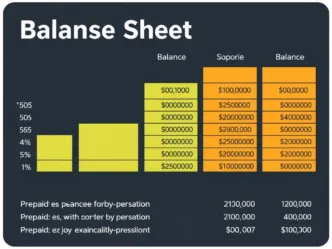Explore the evolution and advantages of computerized accounting systems, which have transformed traditional accounting methods by enhancing efficiency, accuracy, and data security. Learn about the benefits of automation, real-time data processing, and advanced reporting capabilities, as well as the challenges and future trends involving AI, cloud solutions, blockchain, and mobile applications. Discover how these systems are shaping the future of financial management, enabling businesses to make informed decisions and streamline their accounting operations.
Introduction to Computerized Accounting Systems
Computerized accounting systems represent a significant evolution from traditional paper-based methods of managing financial information. Explore the evolution of accounting systems from manual to computerized methods. These systems designed to automate and streamline various accounting processes, enabling businesses to handle financial data more efficiently and accurately. At their core, computerized accounting systems consist of software applications that process financial transactions, supported by hardware like computers and servers, and databases that store vast amounts of financial data.
Historically, accounting was a labor-intensive process, heavily reliant on manual entry and physical documentation. The advent of computerized systems marked a transformative shift, introducing automation and digitalization into accounting practices. This shift not only reduced the time and effort required for bookkeeping and financial reporting but also minimized the risk of human error. Key features of computerized accounting systems include real-time processing of transactions, automated generation of financial statements, and the ability to integrate with other business applications such as inventory management and payroll systems.
Automation in accounting processes is a cornerstone of modern computerized accounting systems. By automating repetitive tasks such as data entry, reconciliation, and report generation, these systems free up valuable time for accountants to focus on more strategic activities like financial analysis and planning. Moreover, computerized systems enhance the accuracy and reliability of financial information, providing businesses with a solid foundation for decision-making and regulatory compliance.
In today’s fast-paced business environment, the importance of computerized accounting systems cannot be overstated. They offer numerous advantages, including increased efficiency, improved accuracy, and better data security. As businesses continue to grow and evolve, the role of computerized accounting systems in managing financial information will only become more critical. This section sets the stage for a deeper exploration of the rise and impact of these systems, highlighting their essential components and the benefits they bring to contemporary accounting practices.
Advantages of Using Computerized Accounting Systems
Computerized accounting systems have revolutionized the field of financial management by offering numerous advantages over traditional manual accounting methods. One of the most significant benefits is the increased efficiency and accuracy in handling financial transactions. These systems automate routine tasks, reducing the time and effort required for data entry and calculations, thereby minimizing the risk of human errors. This automation leads to more accurate financial records, which are crucial for informed decision-making.
Another key advantage is real-time data processing. Unlike manual systems that require periodic updates, computerized accounting systems provide instant access to up-to-date financial data. This real-time information is essential for businesses to quickly respond to market changes and make timely financial decisions. Enhanced reporting capabilities are also a major benefit. These systems can generate comprehensive financial reports, such as balance sheets, income statements, and cash flow statements, with just a few clicks. Such detailed reports are invaluable for management in assessing the financial health of the organization.
Improved data security is another significant advantage. Computerized accounting systems employ advanced encryption and access control mechanisms to protect sensitive financial information from unauthorized access and cyber threats. This ensures that confidential data remains secure, which is critical for maintaining trust and compliance with regulatory requirements. Moreover, these systems offer scalability, allowing businesses to easily expand their accounting operations as they grow. This scalability ensures that the system can handle increased transaction volumes and more complex financial records without compromising performance.
Additionally, computerized accounting systems help in reducing human error and saving time, allowing accountants to focus on more strategic tasks. Advanced data analytics capabilities in these systems enable better financial decision-making by providing insights into trends, patterns, and anomalies in financial data. For instance, companies like XYZ Corp have successfully implemented computerized accounting systems to streamline their operations. Leading to a 20% reduction in processing time and a significant improvement in financial accuracy.
In conclusion, the adoption of computerized accounting systems offers a multitude of advantages. From increased efficiency and accuracy to enhanced reporting and improved data security. These benefits not only streamline financial operations but also empower businesses to make more informed financial decisions. Ultimately contributing to their overall growth and success.
Challenges and Limitations of Computerized Accounting Systems
While the adoption of computerized accounting systems has transformed the landscape of financial management, it is not without its challenges and limitations. One of the most significant hurdles is the high initial setup cost. Implementing these systems can require substantial financial investment in software, hardware, and infrastructure. This initial outlay can be a barrier for small to medium-sized enterprises that might not have the capital to invest heavily in technology.
In addition to the initial costs, there is an ongoing need for maintenance and updates. As technology evolves, accounting software must regularly updated to incorporate new features, fix bugs, and address security vulnerabilities. This continuous cycle of updates necessitates an ongoing investment. Both financially and in terms of time, which can strain resources if not managed effectively.
Cybersecurity risks represent another critical challenge. Computerized accounting systems store sensitive financial data, making them a prime target for cyberattacks. Breaches can lead to significant financial loss, legal issues, and damaged reputations. Thus, robust security measures and regular audits are essential to protect data integrity and privacy.
The requirement for specialized training cannot be overlooked. Staff members must be adept at using new accounting software, which often involves a steep learning curve. Training programs are necessary to ensure that employees can use these systems effectively. Which in turn demands time and financial resources. Without proper training, there is a risk of errors, inefficiencies, and underutilization of the system’s capabilities.
Data integrity and system reliability are other areas of concern. The accuracy of financial data is paramount, and any system failures or errors can have serious repercussions. Reliance on technology means that any technical issues, such as software glitches or hardware malfunctions, can disrupt operations. Businesses must have contingency plans in place to mitigate the impact of such failures.
While computerized accounting systems offer numerous advantages, it is crucial to be aware of these challenges and limitations. A balanced approach, incorporating both technology and human oversight, is essential to maximize the benefits while minimizing the risks associated with these systems.
Future Trends in Computerized Accounting Systems
The landscape of computerized accounting systems is continuously evolving. Driven by technological advancements that promise to further automate and streamline financial management processes. One of the most significant trends is the integration of artificial intelligence (AI) and machine learning (ML). These technologies enable systems to perform complex data analysis, identify patterns, and even predict future financial trends with remarkable accuracy. By automating routine tasks such as data entry and reconciliation. AI and ML free up accountants to focus on more strategic activities, enhancing overall efficiency and productivity.
Cloud-based accounting solutions are another promising development. These platforms offer unparalleled flexibility and scalability, allowing businesses to access their financial data from anywhere, at any time. The cloud not only facilitates real-time collaboration among team members but also ensures that data is securely stored and backed up, reducing the risk of data loss. As more organizations recognize the benefits of cloud accounting, its adoption is expected to grow exponentially.
Blockchain technology is also making waves in the accounting sector, particularly for its potential to enhance security and transparency. By creating an immutable ledger of transactions, blockchain can significantly reduce the risk of fraud and errors. This decentralized approach to record-keeping ensures that all parties have access to the same, unalterable information, thereby fostering trust and accountability.
The increasing use of mobile accounting applications is another trend shaping the future of the industry. These applications enable accountants and business owners to manage their finances on the go. Offering functionalities such as invoicing, expense tracking, and financial reporting directly from their smartphones. As mobile technology continues to advance. These apps are expected to become even more sophisticated, providing users with a seamless and intuitive experience.
Industry experts predict that these trends will lead to a more automated, efficient, and insightful accounting landscape. The future of computerized accounting systems looks promising. With innovations that not only simplify financial management but also offer deeper insights and predictive capabilities. As these technologies continue to evolve, they will undoubtedly redefine the role of accountants. Transforming them from number-crunchers to strategic advisors.






